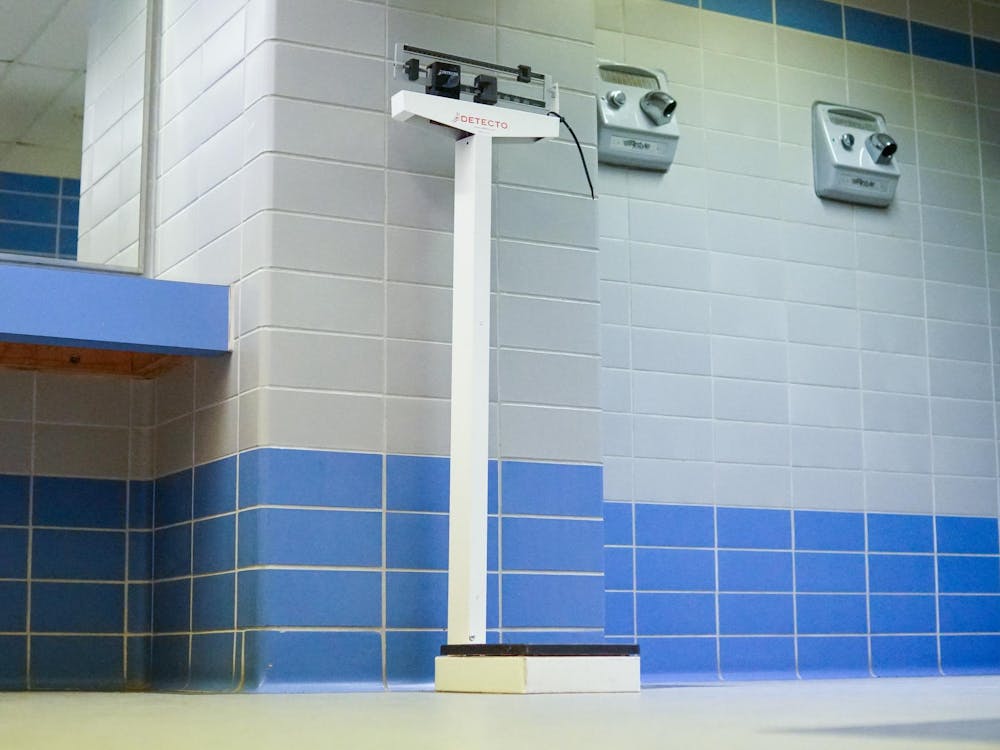Editor’s note: To avoid conflict of interest, Daily News Design Editor Elliott DeRose has recused himself from the analysis of Elevate, as he also acted as a designer for SGA.
Each year, The Daily News analyzes and assigns a grade to the outgoing Student Government Association (SGA) slate.
The Daily News first spoke with members of Elevate when they were campaigning in 2019 and offered our cautious endorsement of the slate after deeming five of its 15 platform points feasible. Even with minimal points considered achievable, we felt encouraged by the slate’s attempts at transparency and communication when campaigning and believed it offered the most potential.
Upon reviewing its term in office, The Daily News found the slate fully completed just three points — inviting other organizations to speak at monthly meetings, adding a Saturday stadium bus and providing weekly social media updates.
RELATED: The Daily News' point-by-point analysis of Elevate's year in office
During our review process, however, we began to wonder if we were asking the wrong questions. When evaluating slates in the past, we only considered the completion of points, but after seeing a pattern of failed goals, we decided we needed to shift our focus to why they were unsuccessful.
It was in this approach that we discovered a disconnect between the definition of the organization’s mission and the goals slates set when campaigning throughout SGA’s more recent history.
In Article II, Section I of SGA’s constitution, it states the organization is supposed to “be the voice of the student body,” “serve as the representative body of the students before Ball State University and the Muncie community” and “advocate and bring attention to issues of concern on behalf of the student body.” While slates do bring attention to certain issues, they also set platform points during each election cycle that go beyond acting as a voice for needs expressed by students.
The candidates’ wording of certain points indicates a belief that SGA has the authority to make certain changes at the university level, and, in certain circumstances, it doesn’t. This makes such points unachievable. Yet, outgoing slates often still tend to feel they have achieved their goals.
Because of this, The Daily News does not feel the grading of Elevate is appropriate. Rather, we are left questioning the effectiveness of SGA as an organization in its current structure.
While not the only perpetrator, Elevate is the most recent example.
Among the points the slate didn’t complete, we found most of them to be misleading because of wording and lack of research.
While the slate made progress toward fulfilling the "Map app improvements" platform point, it wasn't until February that it paired with Digital Corps to send out a survey to students about what changes they'd want to see. By vaguely wording the platform point, it misled people to believe map app changes would be achievable within the academic year.
Additionally, more thorough research would have helped this point, as members later learned only certain changes to the Ball State Map App were able to be made within the timeline they had set. Slate members didn’t learn how difficult the goal was until after it was already set because there wasn’t enough communication with Digital Corps.
But, this lack of preparation and planning wasn’t limited to one point in Elevate’s campaign.
Initially, the slate proposed creating a living learning community (LLC) for commuter students. However, when Elevate members reached out to Chris Wilkey, assistant director of marketing and communications for Ball State Housing, Wilkey said, they discussed an LLC for undecided majors. Regardless of if this was due to a change in the platform point itself or a seperate project altogether, the student body was never made aware of any change, nor were students asked if they would prefer an undecided major LLC instead of one for commuters.
What is also concerning about this discussion is an undecided major LLC already existed in the past but was unsuccessful. If the slate would have conducted more research from the beginning, it would have known to either stick with its original proposal or be more innovative in its approach.
Beyond misleading the student body with wording and lack of research, however unintentional it may have been, Elevate made many promises with platform points it could not live up to. The slate did not have the authority to meet many of its goals but believed starting conversations about those goals was enough despite promising action.
Elevate wanted to expedite counseling sessions, but SGA has no control over people applying for or obtaining open positions at the Counseling Center. In setting this point, the slate failed to come up with an innovative, additional strategy and acknowledge the work already being done by the Counseling Center.
While unable to do what was specifically outlined, a committee was started to have conversations about alternative group counseling sessions, and slate members believed those discussions were enough to say their goal was achieved.
This misunderstanding is the core issue with platform points set by Elevate and previous slates in recent SGA history.
For instance, the 2018-19 Amplify slate initially had a platform point to allocate funds for Ball State’s Counseling Center. Members eventually shifted their focus to organizing mental health-related events and inviting a guest speaker to campus.
Similar to Elevate, Amplify’s platform point was deemed incomplete by the then-editorial board because it wasn’t what the slate promised to do when campaigning.
While it’s clear to us SGA wants to help the Counseling Center in any way possible, it’s also evident slates have no idea how to help. It’s understandable SGA doesn’t have a clear solution when it comes to complex mental health issues, but it’s not acceptable for it to campaign on promising to solve a problem when it’s not in its power to do so.
SGA slates have proven time and time again they may not be researching what they have jurisdiction over and what is obtainable for them to accomplish as a slate.
For years, the organization has continued on this misguided path, but in order to make a difference, SGA needs to focus on quality over quantity of well-researched, achievable platform points, communicate more effectively with the students they serve, and constantly seek out the best way to reach students and invite them into conversations.
Until changes are made so the organization is truly advocating for the student body, The Daily News is left with this question: What role does SGA effectively serve?





